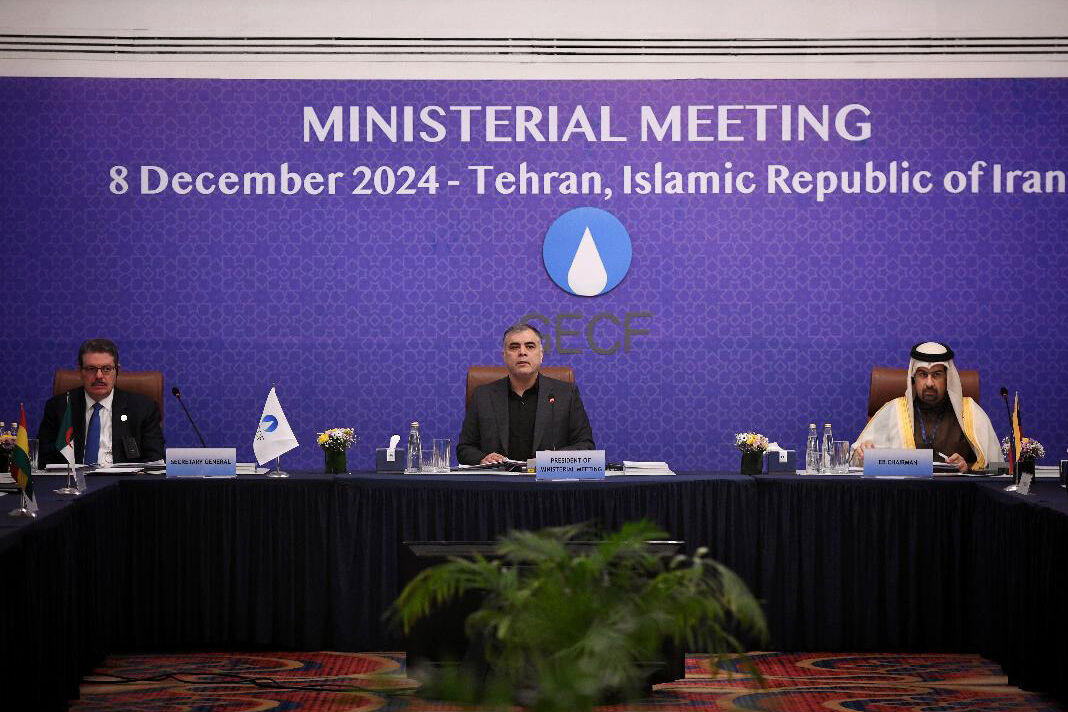In his remarks, Paknejad welcomed dignitaries, ministers, and representatives from GECF member countries, observer nations, and guest countries. He called the GECF Ministerial Meeting one of the most significant events in the global gas industry, providing an opportunity for members and experts to exchange ideas and strengthen cooperation.
Paknejad also welcomed newly appointed ministers from countries including Bolivia, Egypt, Equatorial Guinea, Libya, Russia, Venezuela, Mauritania, Peru, and Senegal. He expressed gratitude to GECF Secretary-General Mohamed Hamel and his team for their efforts in organizing the meeting.
The Minister addressed the geopolitical tensions in Gaza, Lebanon, and Syria, warning that such conflicts threaten global energy security. "These tensions undermine the stability of the region and pose significant risks to global energy supply chains," Paknejad said. He called for international coordination and vigilance to address these challenges effectively.
Paknejad highlighted the need for balanced energy policies and warned against the rushed transition from fossil fuels to non-fossil alternatives. He emphasized that oil and gas will still meet at least half of the world’s energy needs by 2050. "Attempts to eliminate or replace fossil fuels are unrealistic and pose a threat to global energy security," he stated.
The minister also underscored the growing role of natural gas in meeting global energy demands, with the GECF forecasting that it will account for 26% of the global energy mix by 2050. However, he cautioned that achieving this goal requires substantial investment in the natural gas sector, particularly in the face of current energy policies and ongoing global challenges.
Paknejad called for the liberalization of economic transactions and the elimination of unilateral sanctions, which he said distort international trade and harm energy security. He also highlighted the importance of increasing investments in natural gas infrastructure to ensure long-term global energy stability.
Iran, one of the world’s leading natural gas producers, has made significant progress in expanding its gas production capacity despite facing international sanctions. Paknejad noted that Iran’s natural gas production has reached 275 billion cubic meters per year, with gas now constituting over 70% of the country’s energy mix.
He reaffirmed Iran’s commitment to developing sustainable, environmentally friendly methods for natural gas extraction and utilization. "We are determined to lead in advancing technologies that enhance the efficiency of gas extraction while minimizing environmental impact," Paknejad said.
As one of the founding members of the GECF, Iran plays a key role in shaping the Forum's objectives. Paknejad concluded by reiterating the importance of continued dialogue and cooperation among GECF member states to address the challenges facing the global energy market. "The GECF has the will and readiness to play a more effective role in the global gas and energy markets," he said.


Your Comment